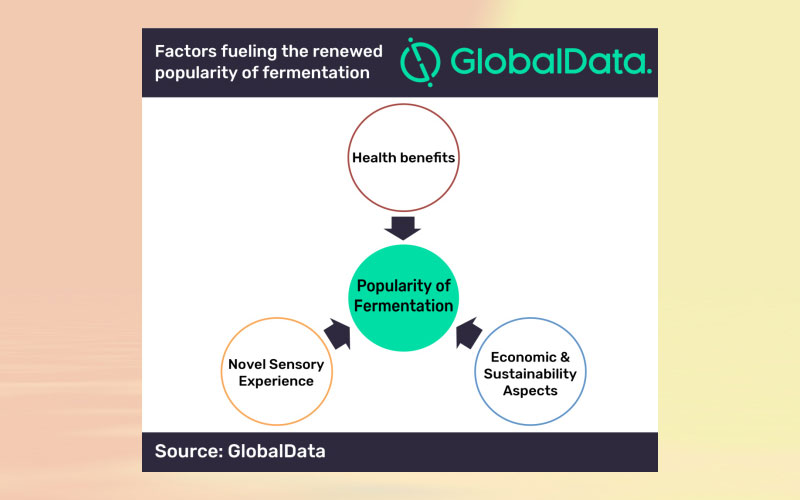Fermentation makes a comeback in the West riding on health and sensory benefits
Fermentation, a practice stretching back more than 10,000 years of human history, employs beneficial microorganisms for enriching and preserving food ingredients.

Fermentation, a practice stretching back more than 10,000 years of human history, employs beneficial microorganisms for enriching and preserving food ingredients. It remains firmly rooted in Asian and African cultures as a tradition passed down from generations. Consequently, fermented foods like Kimchi remain a staple in Korean cuisine, and cultured drinks like Kombucha and Lassi have an unabated following among Chinese and Indian consumers, respectively, says leading data and analytics company GlobalData.
On the other hand, fermented foods have largely been sidelined in Western diets partly due to the hyper-hygienic lifestyles, and the high affinity for processed, canned and pasteurized convenience-foods. This scenario is changing as fermentation once again comes under the spotlight in the West through the rising popularity of exotic Eastern foods and beverages like Kimchi, Kombucha and Kefir.
Health benefits: Bobby Verghese, Consumer Markets Analyst at GlobalData says, “Growing consumer awareness about the link between ‘gut health’ and overall health and wellness is a major factor driving the renewed focus on fermented foods.” Natural preservation techniques like fermentation are gaining ground in the backdrop of the ongoing shift of consumers from processed foods to ‘cleaner-label’ foods with less chemical preservatives. This is underscored by GlobalData Global Consumer Survey 2017 findings which reveal that 75 % of global consumers somewhat or completely agree with the statement that ‘artificial additives and preservatives are harmful to their health’.
Novel sensory experience: Fermented food and drinks offer novel taste and texture sensations which particularly appeal to youthful consumers who are on the lookout for emerging exotic and international cuisines. This reflects in the GlobalData Global Consumer Survey findings which states that 49 % of Millennial and Gen Z consumers like to experiment with new and unusual flavors while choosing food products.
Economic and sustainability aspects: Fermentation processes offer a cost-effective, energy-efficient, and zero-maintenance technology for food preservation. This technique enables efficient utilization of available resources by prolonging the shelf-life of perishable seasonal produce, upcycling food waste, and detoxifying raw materials. Consequently, fermentation holds the potential to make a substantial positive impact on global food wastage and food security.
Manufacturers can leverage fermentation to tap into the growing demand for healthier foods and drinks. For instance, in late 2016, Pepsi acquired branded Kombucha manufacturer, KeVita, to provide an additional option to consumers seeking a healthier alternative to sugary sodas. Fermentation also offers fish and meat producers a potent method for attaining clean label certification for their products without using harmful synthetic preservatives. The growing popularity of fermented foods implies the need for innovative and creative packaging formats that preserve the integrity of the live probiotic culture in the foodstuff, without sacrificing the convenience and aesthetics aspects. In addition, fermentation is making a mark on the cosmetics industry, where manufacturers are vying to develop natural and ‘clean’ beauty and personal care products that are as effective as synthetic formulations.









